
Tech Diva Biz Talks
Ready to mix business with brains, tech, and just the right amount of side-eye? Then welcome to Tech Diva Biz Talks (formerly the Business Chop), the podcast where strategy slays, tech behaves (mostly), and your host, Audrey “Tech Diva” Wiggins, says what everyone else is thinking about marketing and entrepreneurship.
We’re spilling the tea on business blunders, brand glow-ups, digital do-overs, and how to stop ghosting your website. Interviews? Sometimes. Sass? Always. Tech working better for your business? That’s the goal.
Subscribe now to catch every episode and exclusive content.
Want to be a guest on Tech Diva Biz Talks? Send Audrey Wiggins a message on PodMatch, here: https://www.podmatch.com/hostdetailpreview/audreywiggins
#LetsTalkTech #Entrepreneurship #PublishedAndPaid #Authorpreneur #Storytelling #EntrepreneurLife #MarketingMoves #SuccessBlueprint #StartupHacks #KeepItLegal #ScaleYourBusiness #TechForBiz #SmartMoney #BrandingBoss #Innovation #HustleSmart #Mindset #DigitalMarketing #ExitStrategies #SuccessionPlanning #VisualStorytelling #TeamWork
The Tech Diva Biz Talks podcast is a production of Altogether Marketing LLC founded by Audrey Wiggins, Chief Brand Strategist aka Tech Diva. Visit https://altogether.biz for more information.
Tech Diva Biz Talks
From Submarines to Startups A Veterans Journey Through Business with Marcus Norman
Today, we have the pleasure of sitting down with Marcus Norman—a dynamic serial entrepreneur who pours his time, energy, and heart into a multitude of businesses. Hailing from the beautiful Caribbean island of St. Croix, Marcus brings a unique global perspective and a deep-rooted passion for innovation.
Before establishing himself as a business mogul, Marcus served eight years in the United States Navy, where he honed his leadership and discipline at a young age while growing into manhood. We’re honored by his service and grateful for the wealth of experience he brings to our conversation. Marcus is also a podcast host.
Marcus Musa Norman, God Fearing/CEO/Philanthropist
For more great information on passive income Strategies, Tips, Tricks and Secrets, subscribe to the Gentleman Style Podcast for more great Interviews spilling the tea on the most important Topics.
Want to be a guest on Business Chop? Send Audrey Wiggins a message on PodMatch, here: https://www.podmatch.com/hostdetailpreview/audreywiggins
Buzzsprout - Let's get your podcast launched!Start for FREE
Designrr for eBooks, Blogs
Create eBooks, Blogs, Lead Magnets and more!
Riverside.fm Your Own Virtual Studio
Professional Virtual Studio
Altogether Domains, Hosting and More
Bringing your business online - domain names, web design, branded email, security, hosting and more.
Digital Business Cards
Let's speed up your follow up. Get a digital business card.
Small Business Legal Services
Your Small Business Legal Plan can help with any business legal matter.
Looking for Podcast Guests?
Keep your podcast schedule full with quality guests from PodMatch.
Mens and Womens Hats
Since 1972, American Hat Makers has been dedicated to the art of fine hat making.
Disclaimer: This post contains affiliate links. If you make a purchase, I may receive a commission at no extra cost to you.
Want to be a guest on Tech Diva Biz Talks? Send Audrey Wiggins a message on PodMatch, here: podmatch.com/hostdetailpreview/audreywiggins
To work with Audrey schedule a breakthrough/discovery session.
[00:00:00 - 00:01:36]
Welcome to the business Chop where challenges, success, rewards, and solutions to entrepreneurship collide. Let's chop it up. Hello, Chop squad and friends. It is great to be with you. Today we have the pleasure of sitting down with Marcus Norman. He's a dynamic serial entrepreneur who pours his time, energy and heart into a multitude of businesses. I love this already, Marcus. Hailing from the beautiful Caribbean island of St. Croix, Marcus brings a unique global perspective and a deep rooted passion for innovation. Now, if you're watching this, he has on a jacket. So he's not actually in St. Croix right now, he's in Virginia. It's a little cold. All right, so before establishing himself as a business mogul, Marcus actually served eight years in the United States Navy, where he honed his leadership and discipline at a young age while growing into manhood. We're honored by his service and grateful for the wealth of experience he brings to our conversations. Nemarcus also is a podcast host, so we'll hear more from him on the other side of this break. Spring into action. Save the day. Elevating the you on entrepreneurs. Coming April 24th through the 26th, learn from sessions on business technology, artificial intelligence, emotional intelligence, digital marketing, monetizing your knowledge, podcasting, leadership, and more. For pre early bird registration, visit bit Le SpringintoAction2025. Welcome to the business shop, Marcus.
[00:01:36 - 00:01:40]
Thank you for having me on this incredible show. Thank you. Glad to be here.
[00:01:40 - 00:02:08]
You are so welcome. Okay, so in this session, we'll explore your journey through entrepreneurship, real estate and investment, tapping into the wisdom of a seasoned expert who has successfully navigated multiple ventures. All right, so please everyone, join me in extending a warm welcome to Marcus Norman. And let's dive into the world of business through his lens. But first, Marcus, share a couple of fun facts with us.
[00:02:08 - 00:02:56]
Absolutely. Some fun facts about me. I found my way here via the military. So I'm a US Navy veteran, Navy sailor, ex sailor. And I know how to drive a submarine. And you said one of the fun facts that typically catch people by surprise is that I hail all the way from the US Virgin Islands, beautiful island called St. Croix. And so I am not from the continental U.S. i am a U.S. citizen. But hailing from the Virgin Islands tends to give you a different perspective and appreciation for the continental United States here. So, yeah, those are some fun facts about me. Yeah, driving a submarine, a nuclear powered submarine was the most interesting thing I've done to date. So that was a lot of fun. But that's. That's me.
[00:02:56 - 00:03:01]
Okay, well, what was fun about that summary, you know, being submerged I think is pretty cool.
[00:03:02 - 00:03:53]
It is, it is it, it, it teaches you, it matures you. Right. Because you're, you're, it's, it's one thing to drive a car, right. Your first time driving your parents, the car that your parents either give you or you got on your own is, is a maturing phase and it's, it's different. It levels you up. And so driving a, you know, two football field, nuclear powered submarine, jeez, is, is intimidating to say the least. You literally have people's lives at your hand. It's one thing when you have passengers in your car, but talk about 200 plus sailors who depend on you to do your job and to drive and pay attention. Right? No, DWI is under the ocean, so. Oh, very humbling and world of respect for anyone that joins any of our nation's military.
[00:03:54 - 00:04:31]
Absolutely. You're right. Must respect for sure. Okay, thanks for sharing that. And so let's, we're going to jump in. I mean you're a serial entrepreneur and I like this because I like, you know, equates us to like having you know, multiple revenue centers and may even have different names or stuff. So I like that you're, you're doing this. This is exciting. This is how, you know, we live on the edge as entrepreneurs and I like to, I like this, this meth, I pretty much do the same. So when I saw your bio, I was like, yeah, I want to talk to Marcus. All right, so let's start off with the, with the investing. And so how did you actually get started in that?
[00:04:32 - 00:04:39]
I got started in investing when I real. I think everybody's claim to fame is a rich dad, poor dad series.
[00:04:39 - 00:04:40]
Yeah.
[00:04:40 - 00:05:54]
Books. But I also got involved in multi level marketing and so having that dangerous combination really put a taste of entrepreneurship and that there's other things outside of a 9 to 5 job. And when I realized is that there are ways that I can make Money besides the 8 hours or the 10 hours or the 15 hours I put in on my job. It was a true game changer. And you know, I remember the first time I made a dollar from one of my investments. I literally was in shock and I drove to the bank and I actually withdrew the money from the bank so I could feel it, so I could smell it, so I could taste it. Right? Because it was, it was money I had made without any, without me physically exerting myself. And it was the realest thing I had ever experienced. The second time I, I invested, I invested in real estate and the same thing. Within, within one hour I had dove purchased rental property and I had put an ad out. Within one hour, I had someone at my door. Within two hours I had collected first months, last month's and a deposit.
[00:05:54 - 00:06:02]
And that's what makes it real. Right? Like you said, when you have that money in your hand or you made that sales like, wow, I'm really in business. This really works.
[00:06:02 - 00:06:23]
It really works. And it's real money, it's not monopoly money. And I did it from being creative, being entrepreneurial. And it caught and I made more money than I would have made in those three hours doing that than working a 9 to 5 job. And so once the bug bit me, I was trapped.
[00:06:23 - 00:06:28]
That's crazy. Oh my gosh. So were you still working when you first got started or you just dove right in?
[00:06:28 - 00:06:40]
I was working when I first got started because all the entrepreneurs advise that you should still keep a W2 job until more passive income. So now I've been self employed for, for now about six years.
[00:06:40 - 00:06:46]
That's fantastic. Okay, so we're going to move from investing to the ATM business.
[00:06:49 - 00:07:09]
Absolutely. The ATM business was my third investment and I discovered it because I had maxed out all the real estate that I could purchase on my own. And so I literally googled what could I do with this lump sum of money. And I typed it in Google and it came up as the top pick to start an ATM business.
[00:07:09 - 00:07:09]
Really?
[00:07:09 - 00:08:00]
And so I was shocked, just like you, because I think most people think that owning an ATM is done by the banks and the banks only, which is not true. And so when I dove in and I started buying, I bought two books, I followed some, some groups a part of, not necessarily maximize, but Facebook groups and did my due diligence, but then get locked into paralysis analysis. And the young lady I was courting at the time, I remember telling her, I literally told her today, hey, I'm doing this thing, I'm interested in this thing. And the following month I had purchased my first atm, programmed it and placed it in a business and the same thing, and that's 30 days later I had that. And the girl didn't believe me. She's like, you just do whatever you put your heart to. And I said, absolutely.
[00:08:00 - 00:08:21]
And that is key right there. And you know, in your heart is taking action. It's one thing to research it, like you alluded to earlier about the analysis paralysis, but I want to ask you, so the ATMs that maybe we see in some gas stations or some Stores or something. Is that, Is that the ATM business you're talking about? Those belong to individuals?
[00:08:21 - 00:08:36]
Yes, ma'am. So maybe not the Rite Aid or the CVS is. Those are still owned by big banks. Right. But the gas stations, the smaller ones, the mom and pop businesses, the bars, the restaurants, the lounges, those are actually owned by individuals.
[00:08:36 - 00:08:55]
Okay, wow. Okay, so, so does the store or the gas station make money from you having an ATM inside their business? So the two of you benefit, or is it just. It's just you, you come in and you service it and you know, that's the end of your rental space. How does that actually, how does that whole picture look there?
[00:08:55 - 00:09:47]
Great question. Great, great questions. And so that depends on what you negotiate. I've had businesses didn't want any of the profits or revenue from the atm. And you can imagine for like example, I see you got the great high top fade. So a barber, right? Makes it looks good. Barber. I remember placing an ATM in a barbershop. And he didn't want any of the money the ATM made because him and his, his staff, his contractors all made money from the cash that the ATM dispensed. And they don't have to pay the high processing fees from credit cards or square or any of these merchant services. So it was already a win for the shop to have the atm and he wanted no parts of the fees, which was fine. But you can offer a profit share to the business owner so that they get a little residual in that aspect as well. But it's all about the art of the negotiation.
[00:09:48 - 00:10:06]
Okay, yeah, that's, that's a skill you obviously have. Now you, you talked a bit about the real estate and, you know, property management business as you, as you, you know, we first started. So give us a little bit more on that and leave. That lead us into what is house hacking. So about the real estate property management then? House hacking?
[00:10:06 - 00:12:40]
Absolutely. So property management was a natural grow, growth in growth pattern for me when, when I started, when I got my first tenant, and for about two years I did my own property management on my properties. I had owned three doors at the time, and so I did my own property management. It was still small enough to where I could collect rent and I could do the due diligence, I could call the maintenance and save some money on property management. Once I decided to hire a property manager, there's fees involved. And so you can pay those fees to yourself or you can pay those fees to a property manager who's going to answer the phones and collect the rent and do the due diligence and file the eviction notices for you. But I had spent two years learning on my own. And so the conversation shifted when I started first shopping for a property management company. Because I had two years of property managed experience, these property managers could not rip me off, per se, with their exorbitant fee. Some property management companies want, you know, they want to keep the first month's rent, they want to keep the security deposit, they want to keep things. Oh, by the way, you need to give me, you know, $5,000 upfront so I can hold it as a retainer. So anything happens, we'll use that money first and then you replenish it. And so because I did property management for two years on my own properties, I knew the system and I knew the game. And I thought it was completely ridiculous for my prop for property management to charge and keep the renewal payment. So when your property renews, some property management companies want to keep that first month's rent as, hey, we went and spend the cost and spent the money to renew this application for an existing tenant, which is if the rent is $1500, that's absolutely absurd for you to print out a piece of paper and charge me fifteen hundred dollars. Nowhere in anywhere, any business would you pay that price. And so that made the screening process of a property management very easy for me. And so that was, that was powerful. And the other thing that made me hire a property manager is because I'm, I was younger than I am now. And it, it humbles you, right? Because I'm pulling up to the door of my own property and the tenants are looking down at me because they're, they're senior to me. They're, they're my elders. And they couldn't believe that this young man they had to pay fifteen hundred dollars to. And that does something to you, right?
[00:12:40 - 00:12:41]
Yeah, yeah.
[00:12:41 - 00:13:42]
Because I'm dealing with. Sometimes I was. I had tenants who were very high professionals, directors of HR managers and nurses and doctors of, of, you know, big hospitals and big facilities. And so it humbles you when you see a man you know, half your age walk up to you and say, hey, I'm here to collect the rent. And I realize I need to set something in place and I need to put someone in between me because, because my tenants are getting feisty because I'm so young. And it taught me another valuable lesson about delegation. And so I, I no longer own the real estate. I sold off the bulk of my portfolio because now I purchase a franchise. But Real estate is something I intend to do in the near future and intend to get back into. I love real estate. It's, it's been an incredible journey and I learned so much business acumen from it and so many life lessons and it's a great, great, great passive income stream. If I leave anybody with any advice today, buy a four plex.
[00:13:42 - 00:13:43]
Okay.
[00:13:43 - 00:13:58]
Do not, do not buy a single family home. Those days, I feel, are over. Buy a four plex, buy a duplex, buy a multi unit. Do not buy a single family home until you are a little bit more affluent, let's say that.
[00:13:58 - 00:14:08]
Okay, so you're on that. In that same vein, those are residential properties. So what about investing in, in commercial properties? Commercial sweeters.
[00:14:08 - 00:14:16]
Yeah, Commercial properties is a good move. Before COVID Oh, oh, yeah.
[00:14:17 - 00:14:18]
Okay, that makes sense. That makes sense.
[00:14:18 - 00:16:01]
Before COVID depending on what you're buying. But office space? No. Especially after Covid, when everyone went virtual, it's been very difficult to lease up these commercial spaces with tenants because everyone is either going to a hybrid model, if not 100% virtual. And so if you're buying a commercial space, try and mix it up. There's things like mixed use properties that have a multitude of use. One of the things you notice, I do a lot of reading. One of the things you notice in Asian cultures is they'll come and they'll buy a commercial space that has multiple uses. And downstairs is the restaurant, upstairs is the actual bedrooms where the family, the kids, the mom, the wife all live upstairs of their own business. But it's a mixed use property and it's a commercial property. And so the other vacant spaces that can also rent out for a profit. And so you want to look at things that are still needed. And you. And I don't want to tell anyone to kind of exclude residential because people will always, always need a place to live. And then with commercial space, it obviously requires a larger down payment because you're no longer in a residential side of real estate, you're in a commercial site. So it qualifies you for different loans that have higher deposits, down payments that you need to make. Unless you can partner with someone and partner in real estate and y'all collectively do the down payment. But also make sure you know who you partner with if you do a partnership. Dave Ramsey doesn't advise anyone to do partnerships. Nothing works. He could. He puts partnerships in the same category of a sinking ship.
[00:16:01 - 00:16:02]
Oh, bye.
[00:16:02 - 00:16:40]
And so be know who you're investing with, know who you're buying. Commercial real estate it is a still a good play, but you need to really partner with someone. If you don't know what you're doing and really look at is this still useful at the end of the day, you need to understand when investing how you make money, do not, do not do what big Charles Schwab and we're Jones and these big corporates are doing where they're investing all their money in artificial intelligence and tech. If at a basic fundamental level, if you have no idea how this business makes money, do not invest in it. And that's how I've always lived.
[00:16:40 - 00:17:21]
Get your brim on. Since 1972, American hat makers has been dedicated to the art of fine hat making. Their diverse selection caters to outdoor adventurers, style conscious individuals and hat enthusiasts just like me. With a focus on meticulous detail and quality materials. I love wearing their hats. Embrace your own spirit of adventure and individuality. Visit Bit Lee Hats Now Bit Lee Hats now or use our affiliate link in the show Notes to view their vast selection of men's and women's styles. So you've done a couple other things too. Equity investing, investing in, you know, CBD business, you know, with hemp. Tell us about that.
[00:17:22 - 00:19:59]
Absolutely. So I have been attempting to invest in small businesses. There is a barber shop here that was looking to grow and they were looking to grow into offering barbering schools and cosmetology schooling. And that was not the initial play I was going for. I was primarily interested in the barbershop scenario. And so I have, I've been on the lookout constantly for businesses and people that I can invest in within my local community. Because as you grow, you find that it doesn't really matter what you do, it's what you leave behind and what you remember for. And so I want to invest in things that make a profound impact in the community that I live in and that I serve. And I've always been that way. I realize when I look back at the finer points of my life, I've always been a servant. And so I invest in small businesses and I buy into small business who need expertise or capital. And I decide for myself whether I want to be an active investor or whether I just want to be an equity investor where I'm just buying into this company because it's making money. And so that's what led me down the path into investing in the cannabis dispensary space. There is a company called now called Vilizo and it's spelled V L I S O. And the company several years ago Before, COVID was looking for equity investors, and same thing, I had a sum of money. And one of the unique things when I, when I started investing with them, becoming an equity investor in them, is when you invest in a startup, you want to understand the leadership. You want to understand who is running the company. You want to understand the business partners of the company and what their expertise is in the company, especially if you're going to be sitting out on the sidelines and not adding your own skill set to the pot. And so the CEO of this company, he was a cybersecurity professional, and he has a master's degree in engineering. And so those things made sense and aligned with the business that he was starting. And also his partners, the strategic partnerships he had, he had partnerships with marketing professionals and directors to help lift this startup off the ground. And so I invested a large sum of money into this business. And one of the unique things about business that you don't typically see in equity investing is you don't know. Typically, you don't know when you're going to get your money back.
[00:19:59 - 00:19:59]
Right?
[00:19:59 - 00:20:54]
Right. But this CEO offered a unique opportunity that if you gave him a lump sum of money, if you gave him enough money, he would actually give you one of his mobile dispensaries and you could actually start earning your investment back and still maintain your shares. Right. Still maintain that ownership. And that is rare. That is not normal when equity investing. Typically, a couple things have to happen. Either the company has to be bought out, they have to go public on the stock market, or they have to sell to a competitor. And so a competitor either laterally or be bought out by a big competition. And so when I talked initially to the CEO, he made it very plain that this was a startup that he had no intention of keeping.
[00:20:54 - 00:20:55]
Okay.
[00:20:55 - 00:22:17]
And that's important to know again, because it could be 10, 15, 20 years, or you could never see your money back. And so this CEO made it very plain that he had no intention of keeping this business once he was adamant that he wanted to build the company to a certain level and sell. And so that was significant to me because I need to understand how I'm going to make my money back, because I'm giving you a lot of money. And so that was significant. And then, like I said, the second significant milestone that made me invest was, hey, typically you don't have to wait 10, 15 years. We'll give you our cannabis dispensaries. And so these are mobile dispensaries that you can place in a mall, you can Place in an airport, you can place it in a storefront, you can place it outside. And these dispensaries have the technology, which is why that cyber security masters was important. It has a lot of technology and artificial intelligence to help verify that the person who's buying cannabis is of legal age to purchase cannabis. And in the six years that I've been an investor within, we have not, knock on wood, had an accident where we've dispensed cannabis to a minor. Wow. So that's, that's some fundamentals about equity investing in the cannabis space tied into one.
[00:22:18 - 00:22:34]
Yeah. Now you talked about technology. That was going to be my next question. For, for everything that you, you know, pretty much have done or still doing, you know, how does that play into, you know, to your operations or, you know, just, you know, from the front side or even the backside?
[00:22:34 - 00:25:31]
Absolutely. So great question. Technology plays, I think, depending on who you are, a vital role in society and in our process to grow. What you don't want is you don't want to become the Netflix or the blockbusters of old Blockbuster is out of business because they refuse to innovate. Sam's Club, Radio Shack, all these businesses are out of business because they refuse to innovate. And so, but that doesn't mean, as business owners, we don't want to have the necessary due diligence and take the necessary precautions when incorporating artificial intelligence or chat, GBT or any other technology form into your business. And you want to take the respective time to look at it as a whole. Prime example. I just bought a mental health franchise and the new kid on the block, especially with the introduction of artificial intelligence and artificial intelligence, being able to basically pretend to be a customer service representative. There is a ethical challenge right now in the mental health space in the franchise that I bought in, it's a mental health franchise. And so there's an ethical complaint going around right now because people who are seeking mental health services, you can imagine we are dealing with some of the most traumatic things known to man. People are dealing with grief, trauma, loss of loved ones, death. And so what you what, what's scary is you don't want to connect that person to a chatbot that is not an actual person. And so that's kind of the hard driving point right there is I'm on the fence, I'm about to jump, and now you have connected me to an artificial robot that may or may not understand the complexities and problems that I'm facing and may even, I may still commit suicide. And I Never spoke to a live person. And so you want to be careful ultimately when you incorporate technology. And I have incorporated a lot of technology into everything that I do. I have a podcast, I have the cannabis, I have the franchise, I have real estate. But you want to just be mindful of what you're doing. I think as a people, as a society, we have to be careful with innovation, but not, not be afraid of innovation and let it, let it happen and grow. We need to develop. Right. A lot of people in the trucking industry are upset because they feel they're being replaced with self driving trucks. Well, you need to innovate. Instead of being an operator and a driver of a truck, maybe consider going back to school and becoming a technician so that way you can service the same trucks and remain relevant in your demographic. And so those are some tips on, on, on technology and incorporation them into your business.
[00:25:32 - 00:25:39]
Yeah, absolutely. Thank you for that. You have a couple, you know your podcast. Tell us about that and how we can find you.
[00:25:39 - 00:25:51]
Absolutely. So you can find my podcast, gentleman style podcast dot com. So that's www.gentersstylepodcast.com and the podcast is just like, not as good as this one.
[00:25:51 - 00:25:54]
Oh, I'm sure it's better. Don't even go there. Don't even go there.
[00:25:54 - 00:26:43]
Listening. You have an incredible show. But my podcast aims to serve us. It aims to serve men and women because we're not succeeding in life. We're not winning in the various aspects of life. Not just business, but all facets, right? Relationships, marriage, sex, dating, religion, spiritually. And so what I do on the podcast is me and my team find the most creative speakers who actually give back. So it's not going to be a podcast where you tune in and the person is just talking in riddles or the guest is simply just trying to refer you out to buy his book. No, I, we purposely do not have guests like that on the show. The people we invite to be on the show have to give. They have to give back.
[00:26:43 - 00:26:46]
Yes, value, yes, give value.
[00:26:46 - 00:27:08]
And people will seek you out organically. And we've interviewed celebrities, we've interviewed comedians, we've. We just interviewed Michael, Michael Collier of Deaf Comedy Jam. We've interviewed Pastor Dwight Buckner who was on the famous BET show. We've interviewed some really heavy hitters and all of them consistently, routinely give.
[00:27:08 - 00:27:20]
You've dropped nuggets all along the way because usually my final question is, you know, drop on us, you know, some nuggets that, you know. So what do you want to leave us with. What is that powerful thing you want to leave us with?
[00:27:21 - 00:28:26]
Thank you for having me again on your incredible podcast. I really appreciate an honor to be here. Two nuggets is that is what one. Lead with love. Anything you do, lead with love. And try that. There's a lot of anger. There's a lot of frustration, especially in this political arena. There's a lot of anger and hatred being spread. Anything you do, lead with love. And then secondly, I tried to live my life because I've had some traumatic events happen in my life, especially battling Covid and not almost not surviving. And the second point I want to leave people with is if you die today and you're not happy with what they. What people would potentially write on your headstone, change. If you're not happy with the impact you've made in life and you're not happy with what you think people know you for, change. Change today. Not next week, not tomorrow, not at the beginning of the new year. Change. Change for the better and give back and serve. Because that's. That's the way I live my life now. It adds way more value.
[00:28:27 - 00:28:43]
Yeah, absolutely. That was powerful. Thank you, Marcus, for that and thank you for sharing with us on the business Shop the Chop Squad. Take heed to what Marcus has shared with us today and go out and, you know, make something awesome happen, you know, for yourselves and for your community. Thank you.
Podcasts we love
Check out these other fine podcasts recommended by us, not an algorithm.

Podcasting Made Simple
Alex Sanfilippo, PodMatch.com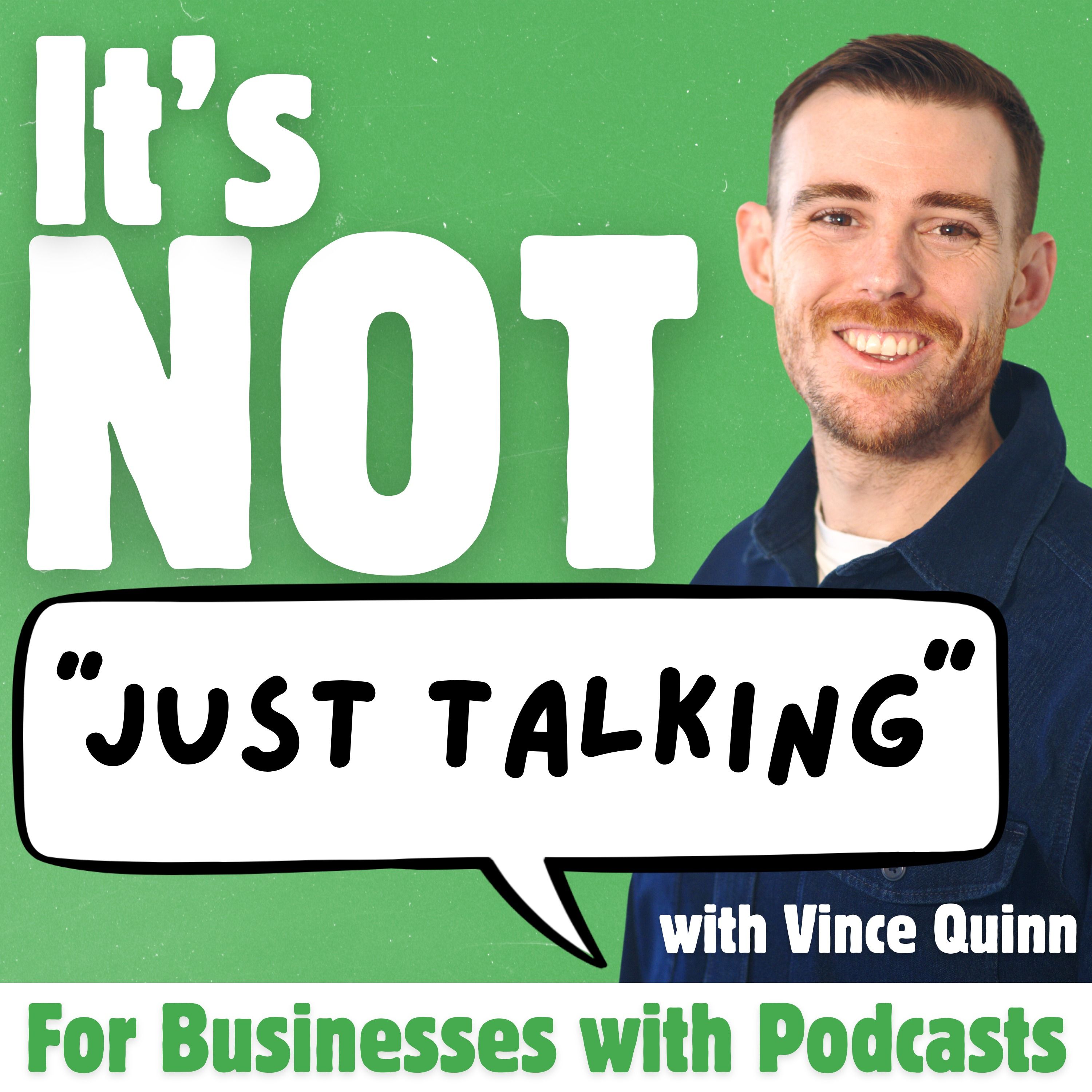
It's Not Just Talking with Vince Quinn
SBX Productions, Vince Quinn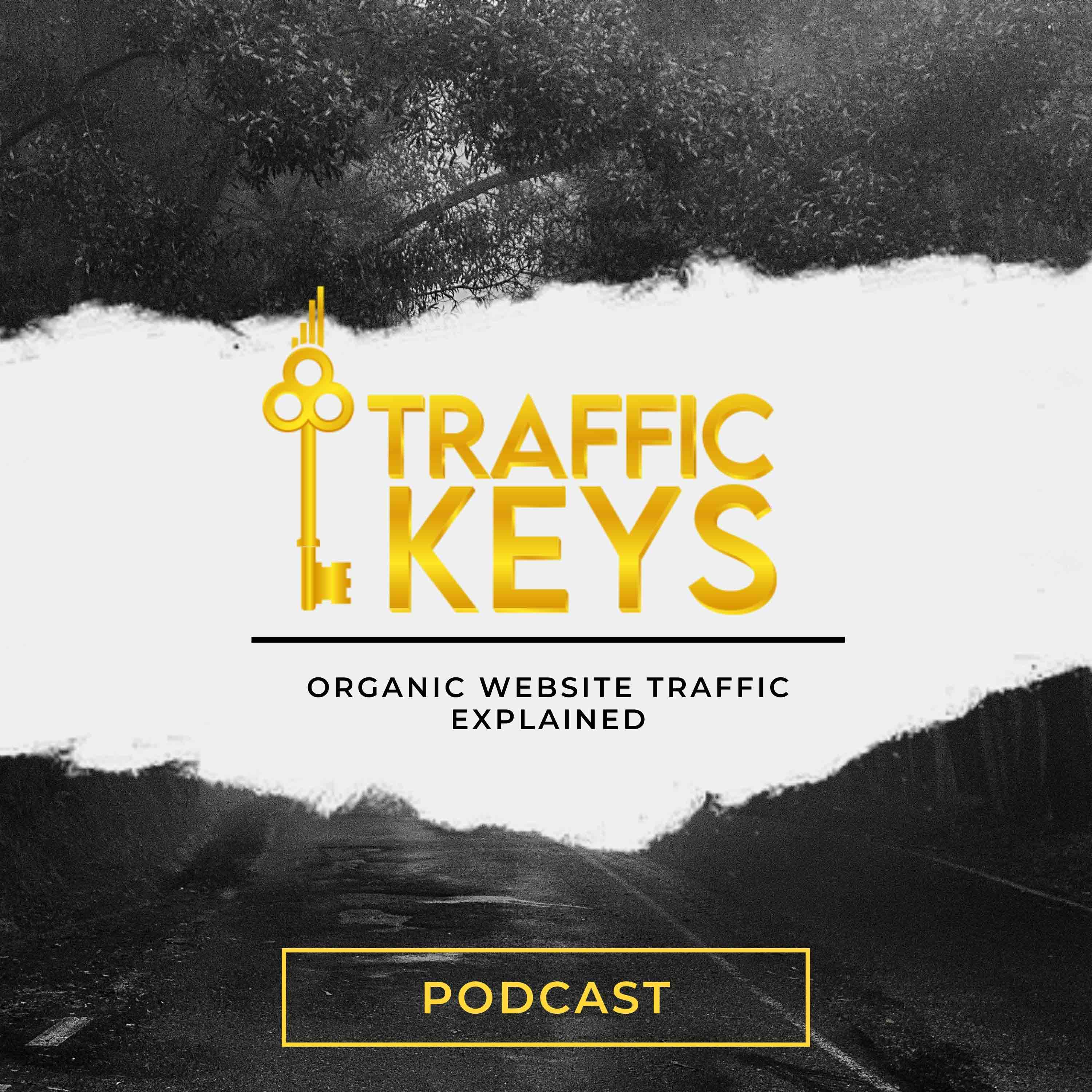
Traffic Keys Podcast
Atiba de Souza
I Have A Podcast by Vinnie Potestivo
Vinnie Potestivo
Entrepreneurs on Fire
John Lee Dumas of EOFire
Imperfect Marketing
Kendra Corman
Raise the Script with Nutrigenomics
Dr. Tamar Lawful, PharmD, APh, CNGS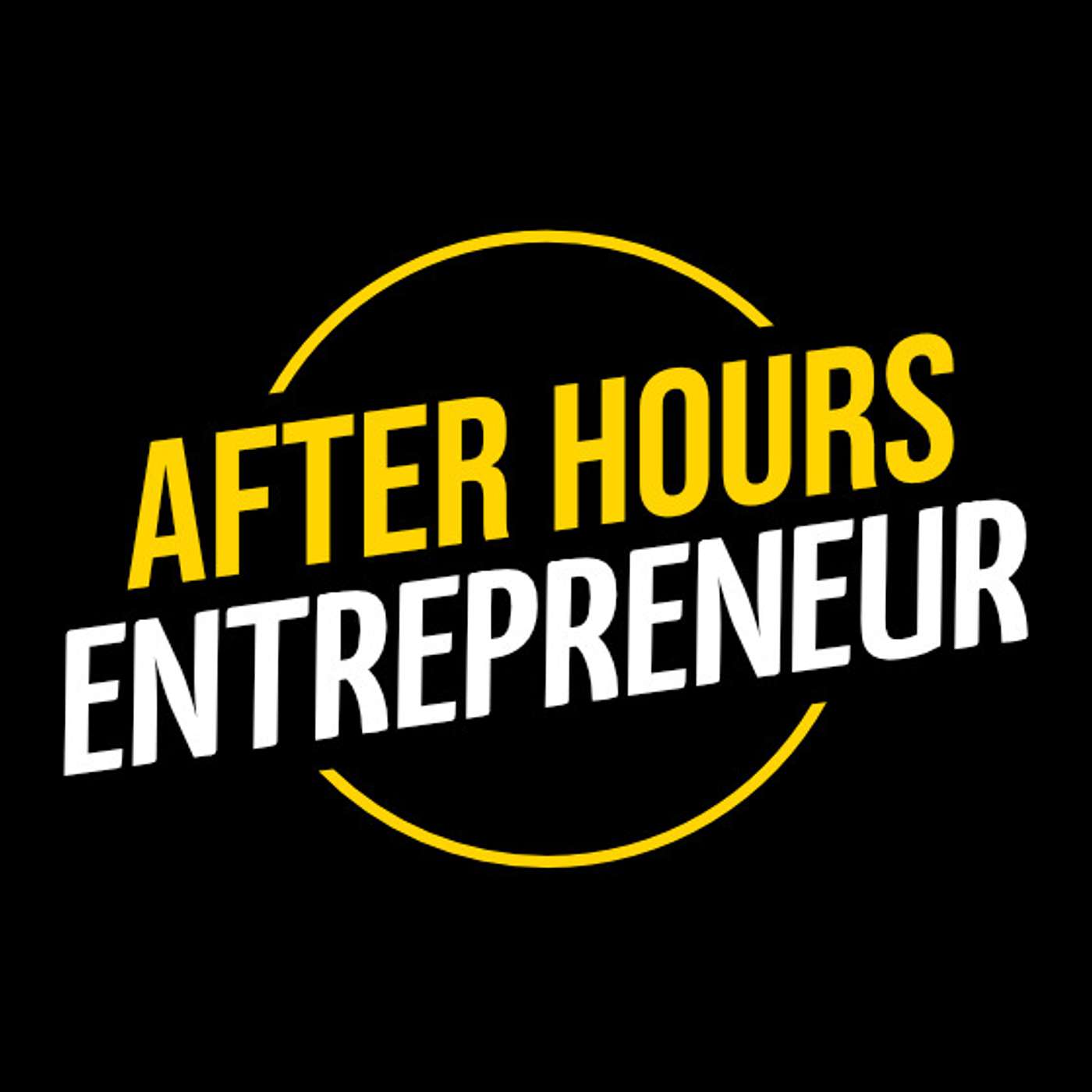
After Hours Entrepreneur with Mark Savant
Mark Savant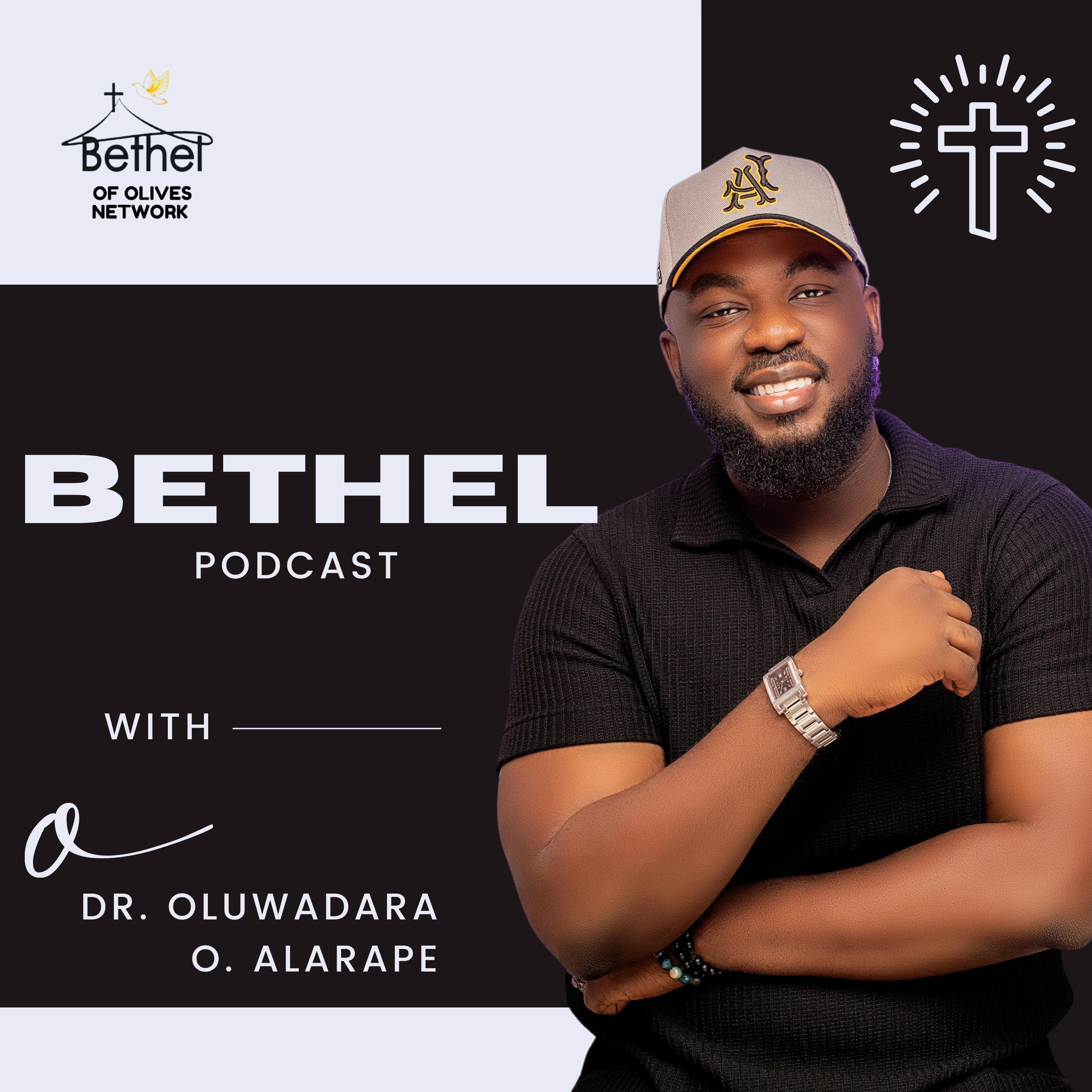
BETHEL
Dr. Oluwadara Alarape
Thoughts on Thought Leadership with Atiba
Atiba de Souza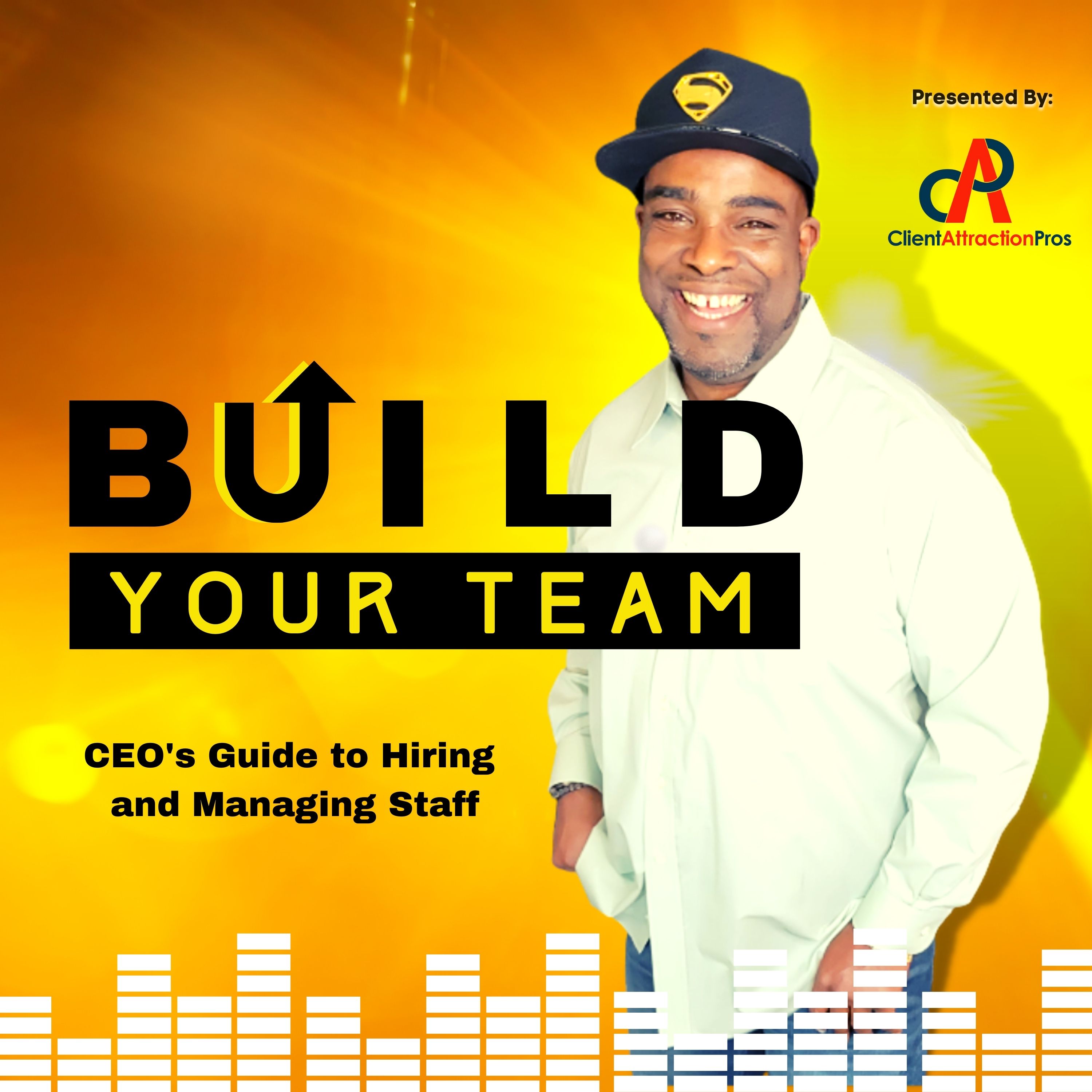
Build Your Team
Atiba de Souza
Inspirations for Your Life
John C. Morley, Serial Entreprener
Marketing in the Age of AI
Emanuel Rose
Creativity in Focus - Audio Only
Shahar Boyayan
Make Something Happen with Audrey Wiggins
Audrey Wiggins
The UnNoticed Entrepreneur
Jim James
Music 101
Daniel Lucas / G.Mick Smith
Abstract Poetry
Daniel Lucas
Food 101
Daniel Lucas/Alessandro Panattoni
Abstract Essay
Daniel Lucas /Sal Cosenza
#iesgaherrera28d28sonidos
daniel lucas
El podcast de Lucas Daniel Porra
Lucas Daniel PorraDaily Dose of Dave Podcast
Dave Valentine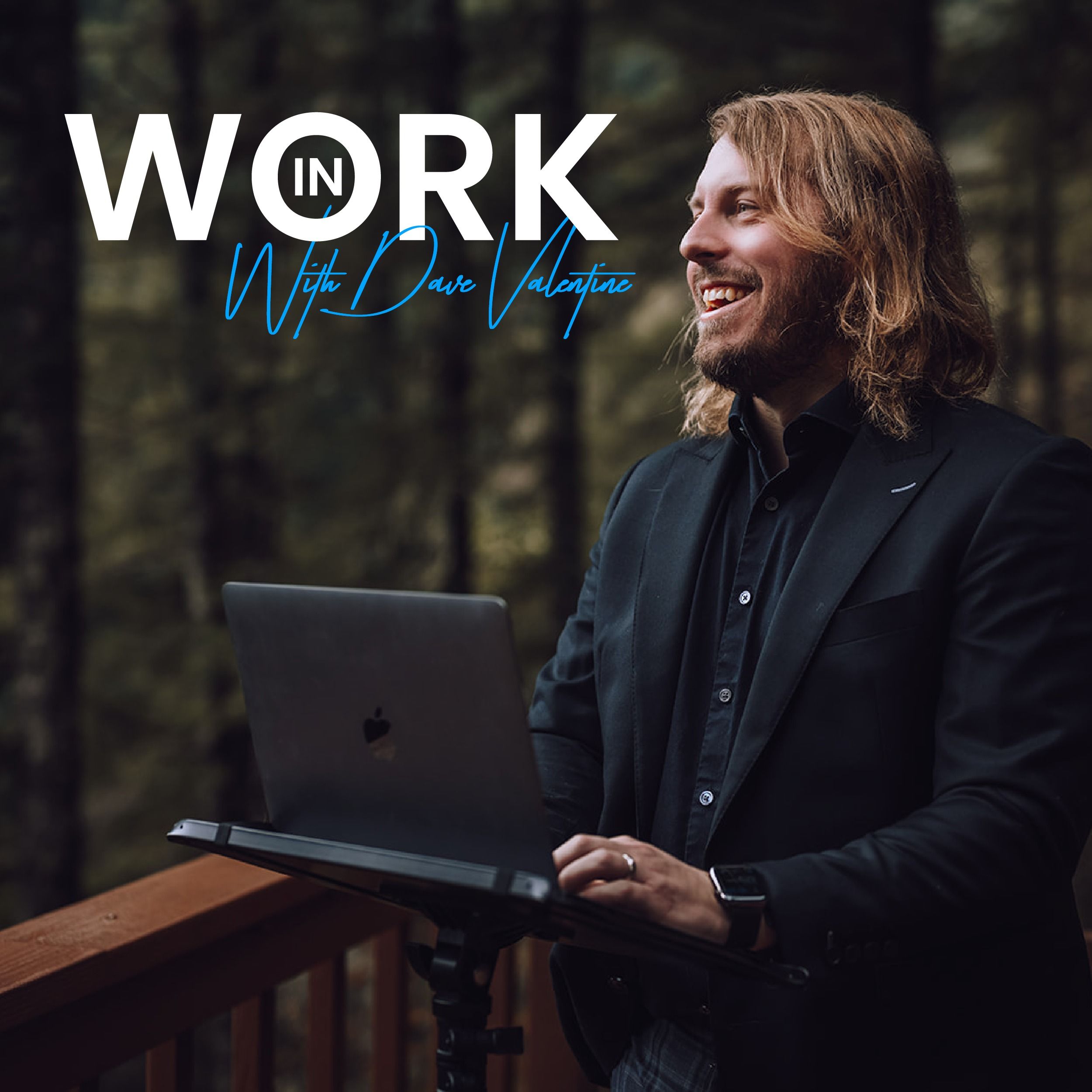
InWork Podcast with Dave Valentine
Dave Valentine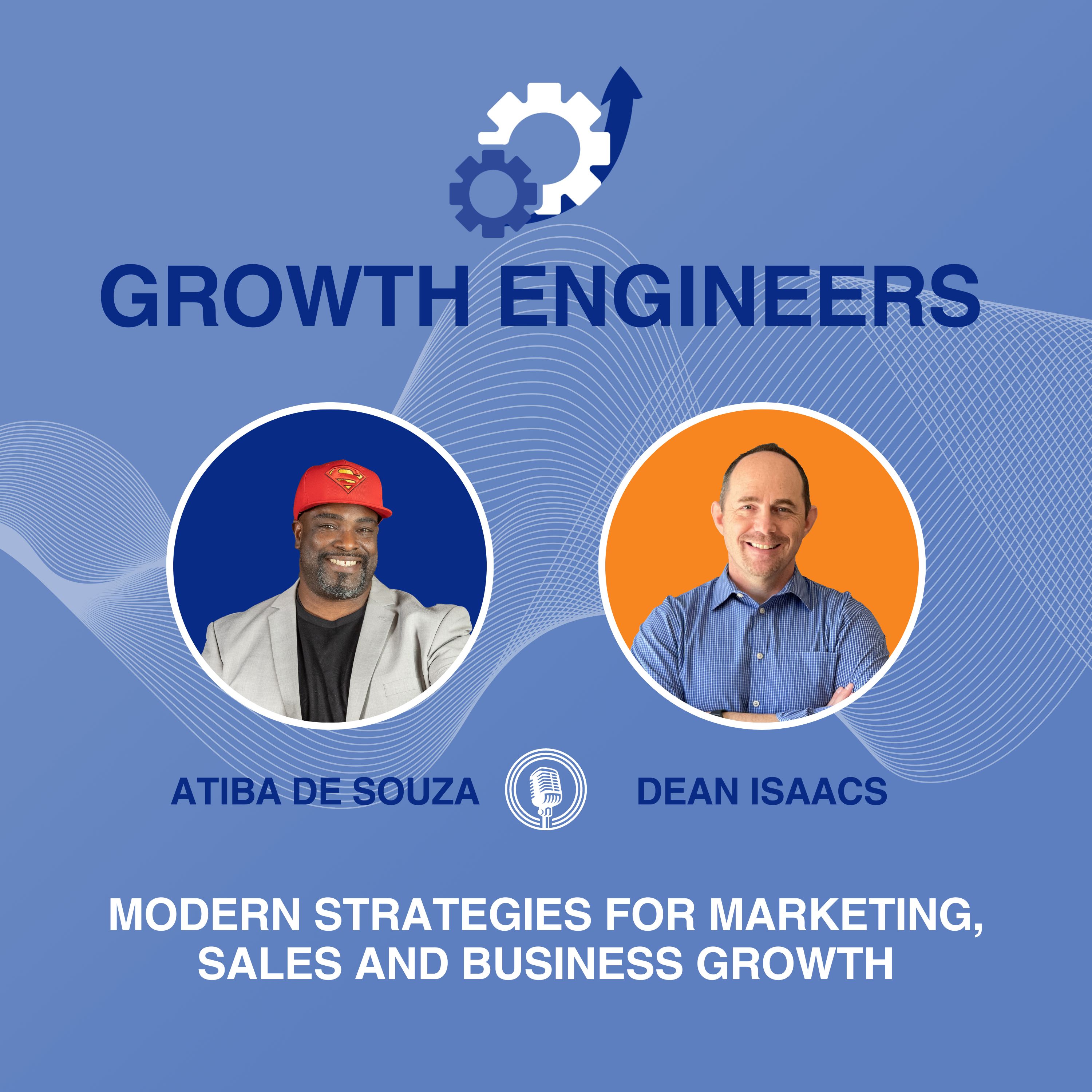
Growth Engineers
Atiba de Souza and Dean Issacs
Refuge Freedom Stories
Jonnie Taverner

